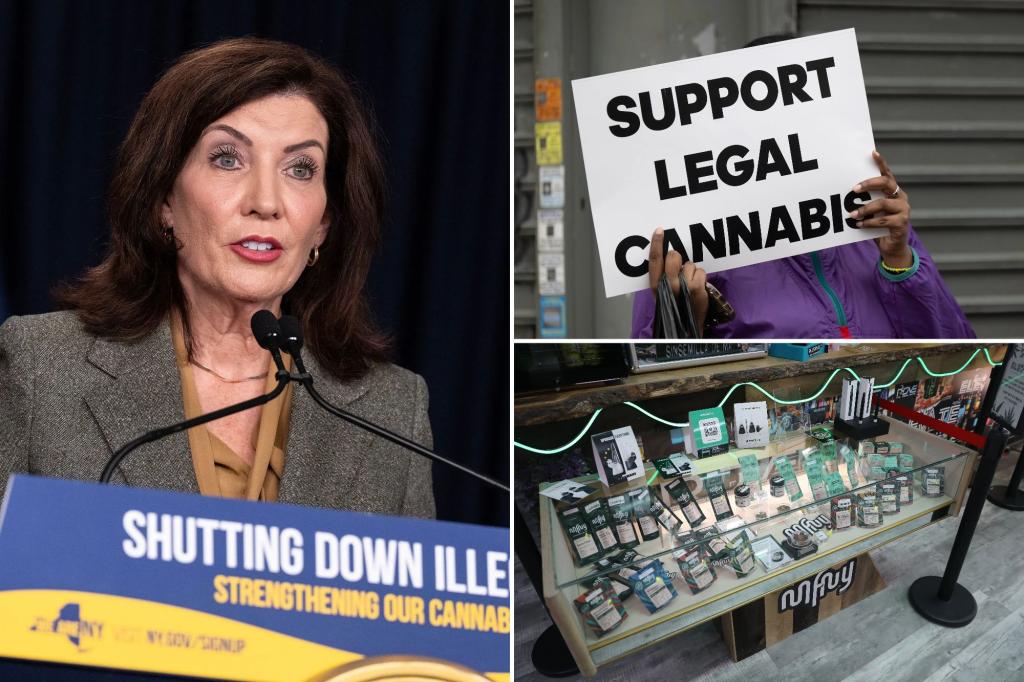The Cannabis Association of New York, a group representing the legal marijuana industry, has warned Gov. Hochul’s cannabis regulators about the potential negative consequences of a dramatic increase in the number of pot stores. The group’s president, Damien Cornwell, expressed concern that state regulators have not yet effectively dealt with the issue of illegal pot operators. Cornwell emphasized the need for thorough analysis and stakeholder input before implementing any significant changes to the number of cannabis licenses in the state, in order to avoid disastrous consequences for the industry and public health.
Despite criticism of a slow and rocky rollout since the first licensed pot store opened in December of 2022, state officials have made efforts to ramp up the issuance of licenses and approve openings of dispensaries following the settlement of lawsuits that contributed to delays in licensing and store openings last year. Currently, there are 103 legal cannabis stores open throughout New York, a significant increase from 26 stores last November. More than 400 cannabis licenses, ranging from growers to retail stores, have been issued by state regulators this year, including 101 licenses approved at the April 11 Cannabis Control Board meeting.
While the legal cannabis industry continues to expand in New York, Damien Cornwell advised caution and prudent deliberation to avoid overwhelming the market. He warned that handing out licenses without a comprehensive understanding of the market’s capacity could lead to oversaturation, business failures, and unintended public health risks. Cornwell highlighted the challenges faced by licensed retailers in competing with the illegal market and expressed concern that flooding the market with additional licenses could result in a wave of closures, undermining the state’s social equity goals and leaving vulnerable entrepreneurs in an unsustainable market.
In his letter to the Cannabis Control Board, Cornwell called for a sweeping market analysis and review with stakeholders before making any major policy decisions affecting the industry. He emphasized the unique challenges faced by licensed pot stores, such as being unable to deduct ordinary business expenses for income tax purposes due to the federal classification of cannabis as an illicit drug. Cornwell stressed that this tax burden could significantly impact the profitability and financial viability of cannabis retail stores compared to other retail businesses, highlighting the need for careful consideration and support for the legal marijuana industry in New York.













